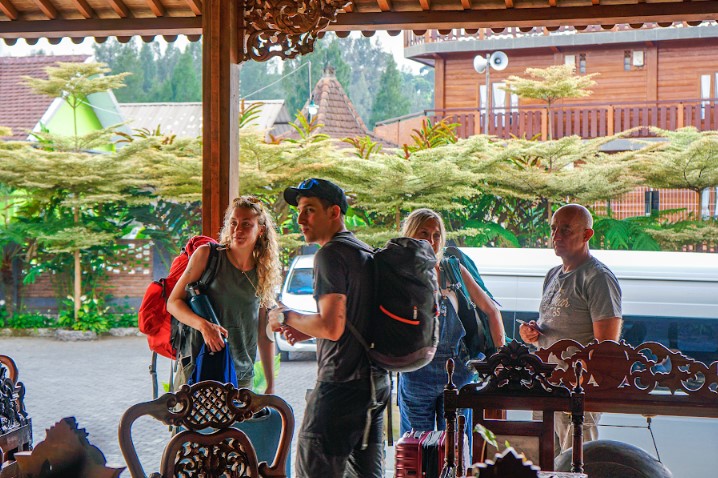As the omicron variant stirs up questions and concerns around the world, the World Health Organization (WHO) announced it was advising some to postpone travel plans.
In a news release published on Tuesday, the WHO emphasized that the omicron variant was still being studied and that the new variant of concern carried a high number of mutations, in comparison to earlier strains of COVID-19. While health officials continue to monitor the situation, the WHO advised people to get vaccinated, adhere to social distancing and wear masks.
Certain people were also encouraged not to travel, with the WHO saying, “persons who are unwell or at risk of developing severe COVID-19 disease and dying, including people 60 years of age or older or those with comorbidities (e.g. heart disease, cancer and diabetes), should be advised to postpone travel.”
It’s the first age-specific recommendation to come from a health agency since omicron was declared a variant of concern last week. Those 60 years old and older have been consistently targeted throughout the pandemic, as they carry a higher risk of severe illness and disease.
Our country is in a historic fight against the coronavirus. Add Changing America to your Facebook or Twitter feed to stay on top of the news.
According to the Centers for Disease Control and Prevention (CDC), those aged 65 to 74 account for 21 percent of all US deaths by COVID-19. That percentage grows as age demographics increase, with 75 to 84-year-olds accounting for 26 percent of all US deaths and 85+ accounting for 28 percent.
Multiple countries quickly implemented travel bans for international travelers coming from Southern African countries and other regions where cases of omicron have been reported, since the WHO announced omicron a variant of concern. That includes President Biden, who announced travel restrictions from South Africa and seven other countries.
The WHO expects that the omicron variant will be detected around the world, and in response, countries should implement safety measures like testing passengers prior to travel and upon return for COVID-19 and instate necessary quarantine rules.
However, at the same time the WHO said blanket travel bans will not prevent the international spread of the new variant. Travel bans create burdens on people and families and can carry an adverse impact on global health efforts during a pandemic, disincentivizing countries from reporting and sharing data on the virus.
In a separate technical paper published on Monday, the WHO recommended that vaccination efforts be “intensified” for all eligible populations. The continued use of masks, social distancing and frequent hand washing was also recommended as variants continue to emerge throughout the pandemic.
BREAKING NEWS ON THE CORONAVIRUS PANDEMIC
DOCTOR WHO DISCOVERED OMICRON EXPLAINS THE SYMPTOMS TO WATCH OUT FOR
EXPERTS PREDICT AN ALARMING SURGE OF US COVID-19 CASES THIS WINTER
HUGE NEW STUDY FINDS MASKS MOST EFFECTIVE PUBLIC HEALTH MEASURE IN FIGHTING COVID-19
TOP HEALTH EXPERT CALLS FOR ‘URGENT’ RESEARCH ON NEW UK VARIANT THAT MIGHT BE MORE CONTAGIOUS THAN DELTA
FLORIDA SCHOOL QUARANTINES STUDENTS WHO GET VACCINATED FOR 30 DAYS






More Stories
The Ultimate Guide to Mount Bromo and Ijen Tour: A Journey into Nature’s Wonders
The Complete Guide to Pantheon Tickets
Journey Through Italy